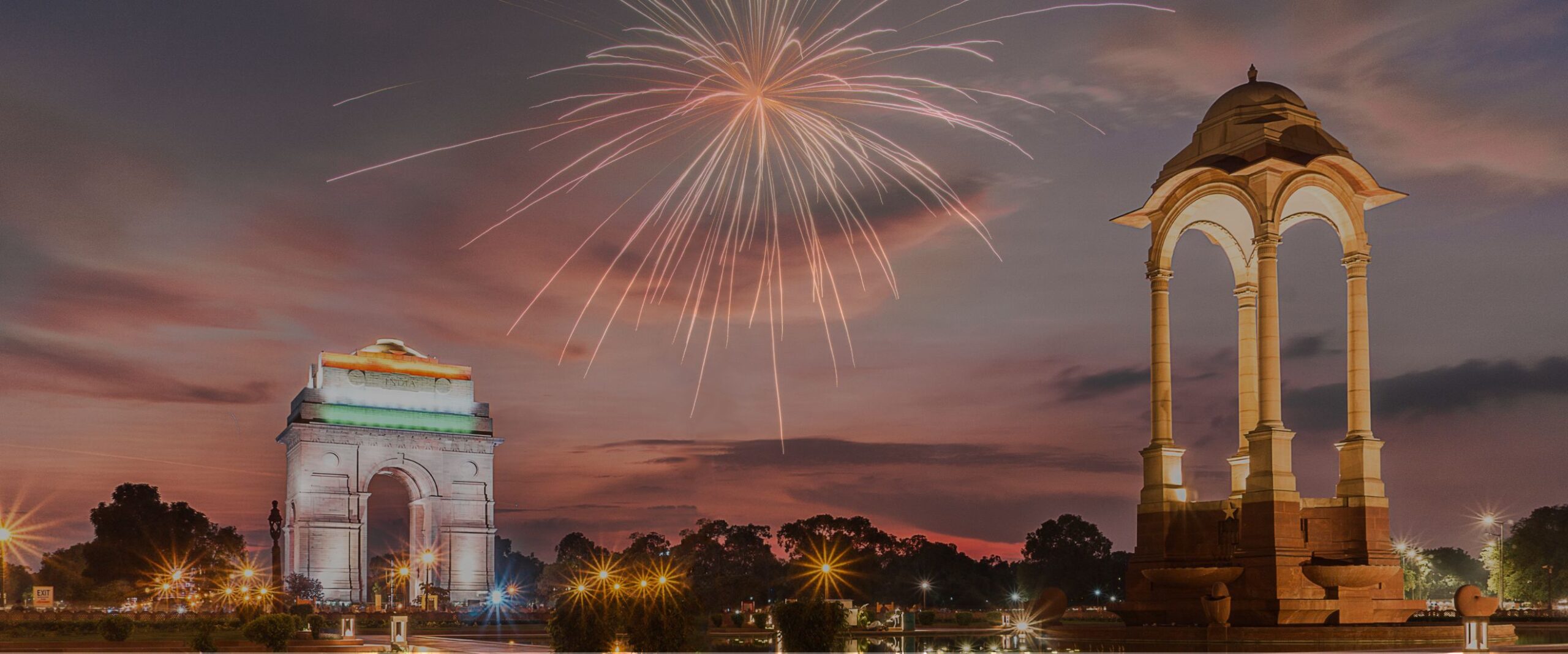Analysis
Delhi Pollution Crisis | NCR states urges ‘balanced approach’ on use and sale of green firecrackers during Diwali; SC reserves judgement
NCR states argued that Diwali firecrackers are not the only contributor to pollution, alongside stubble burning and temperature inversion

Today, the Supreme Court reserved its judgement on whether the National Capital Region (NCR) can permit the limited use of green firecrackers during the upcoming festive season. The Bench of Chief Justice B.R. Gavai and Justice K.V. Chandran heard pleas from the NCR states seeking permission for regulated celebrations during Diwali, Christmas, and Gurpurab, while ensuring pollution safeguards remained in place.
Mehta: Green firecrackers with licensed sales and strict enforcement
Solicitor General Tushar Mehta, appearing for Delhi and the NCR, urged the Court to adopt a “balanced approach” that respects peoples’ right to celebrate while protecting public health. He proposed that only green firecrackers, approved by the Petroleum and Explosives Safety Organisation (PESO) and the National Environmental Engineering Research Institute (NEERI), be allowed. Mehta submitted that any firecrackers found to violate the rules would be immediately confiscated, with strict action taken against the manufacturing units, adding that PESO and NEERI would periodically inspect manufacturing units to ensure that only approved formulations reach the market. Mehta submitted the following list of proposed restrictions:
- Use of firecrackers permitted only during carefully restricted hours: 8 pm to 10 pm on Diwali, 11.55 pm to 12.30 am on Christmas Eve and New Year’s Eve, and 4 am to 5 am and 9 pm to 10 pm on Gurpurab.
- Sale of firecrackers permitted only by licensed traders who shall stock exclusively NEERI-approved green formulations, ensuring that unsafe or unverified crackers do not enter the market.
- Prohibition of online sales across all e-commerce platforms, including Amazon, Flipkart and others to prevent unauthorised distribution or deliveries.
- Ban on production and sale of joint firecrackers or ‘laris’ to remain in force, limiting high-emission, high-risk products.
- Supervised enforcement to be undertaken by the Delhi and NCR governments in coordination with PESO, with inspections of manufacturing units and retail points to ensure full traceability from production to consumer.
- Permission for green firecrackers to be used at weddings, religious ceremonies, and community events, provided the same emission standards and regulatory checks are strictly applied.
CJI Gavai questions efficacy of blanket ban amid AQI trends
CJI Gavai questioned whether any material improvement in air quality justified a continuing blanket ban, “Has the indexed pollution from 2018 to 2024 gone down? Was the AQI of 2018 much less than that of 2024?” Mehta responded that except during the pandemic lockdown, it remained roughly the same,” and that no study had directly linked Diwali firecracker use to long-term deterioration of air quality.
Senior Advocate K. Parameshwar, representing the manufacturers, submitted that the ban in Haryana had been imposed “without consultation,” noting that “half the state is under prohibition without even being heard.” He relied on Arjun Gopal v Union of India (2018) to point out that since 2017, only green firecrackers had been permitted, and argued that enforcement should focus on NEERI-based testing and a restricted network of authorised distributors rather than broad restrictions.
In Arjun Gopal, the Court imposed significant restrictions on the manufacture and sale in Delhi-NCR, permitting only “green firecrackers’ with reduced emissions and mandating approval from PESO and NEERI. Over time however, several states have extended the ban to green crackers as well.
Senior Advocate Uttara Babbar, the amicus curiae, raised concerns about enforcement, asking, “How will we ensure that this 50 percent composition-laden formulation is actually followed?” She questioned the feasibility of maintaining quality control once the crackers enter the market. Babbar further noted that the NCR typically experiences heavily polluted air during diwali, influenced by multiple factors such as temperature inversion and stubble burning, with firecrackers being only one contributing element. CJI Gavai observed that the Court in Arjun Gopal had held that a complete ban was not the solution and had instead issued specific directions to regulate the industry. Babbar added, “We can see the writing on the wall. We know where this is going,” prompting the Chief Justice to interject, “No, no, just tell us… was there a drastic change in AQI?”
“Let the children celebrate at least for two days,” Mehta urged, stressing that the proposal “balances the right to breathe clean air with the right to celebrate responsibly.” The Chief responded, “We will see.”
The Bench then reserved judgement.
